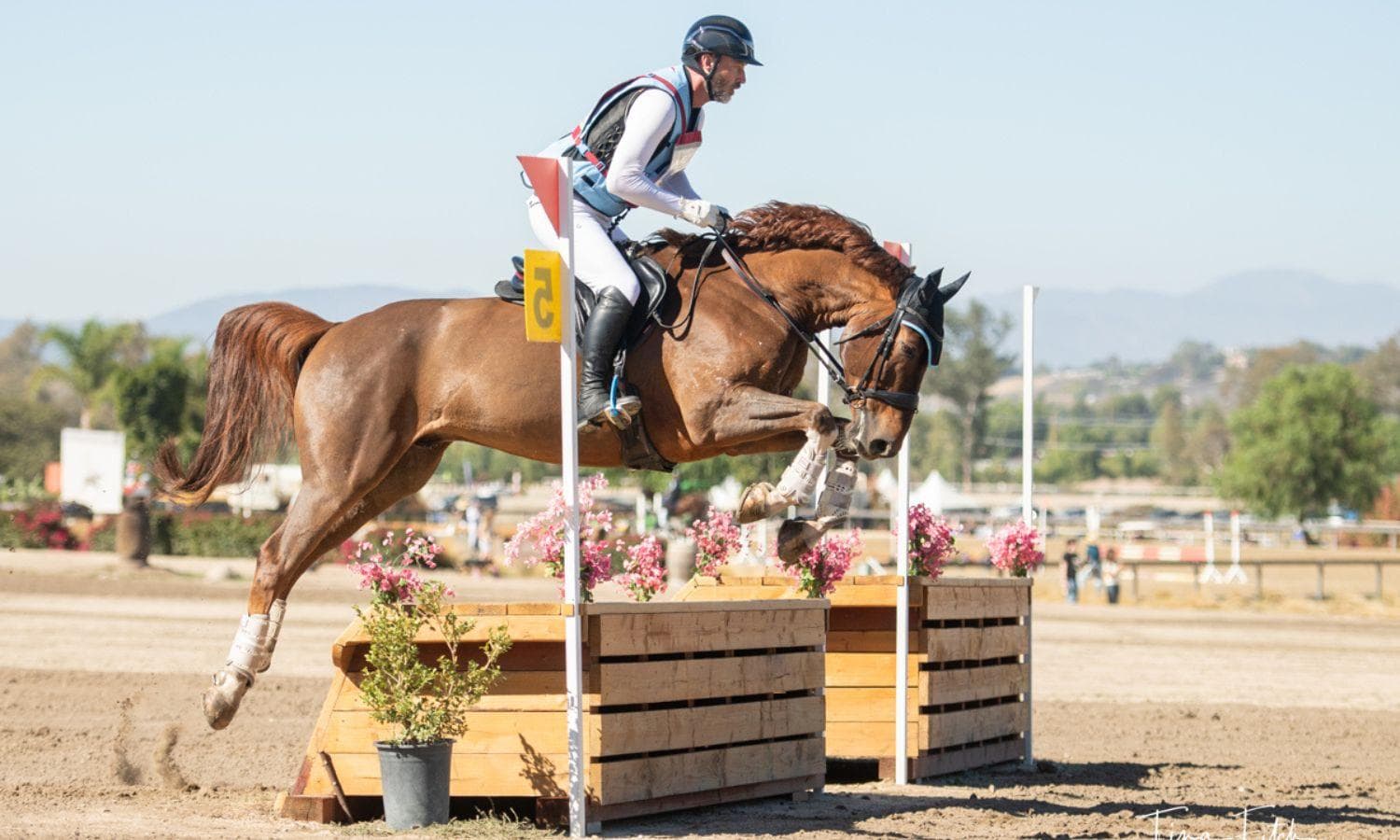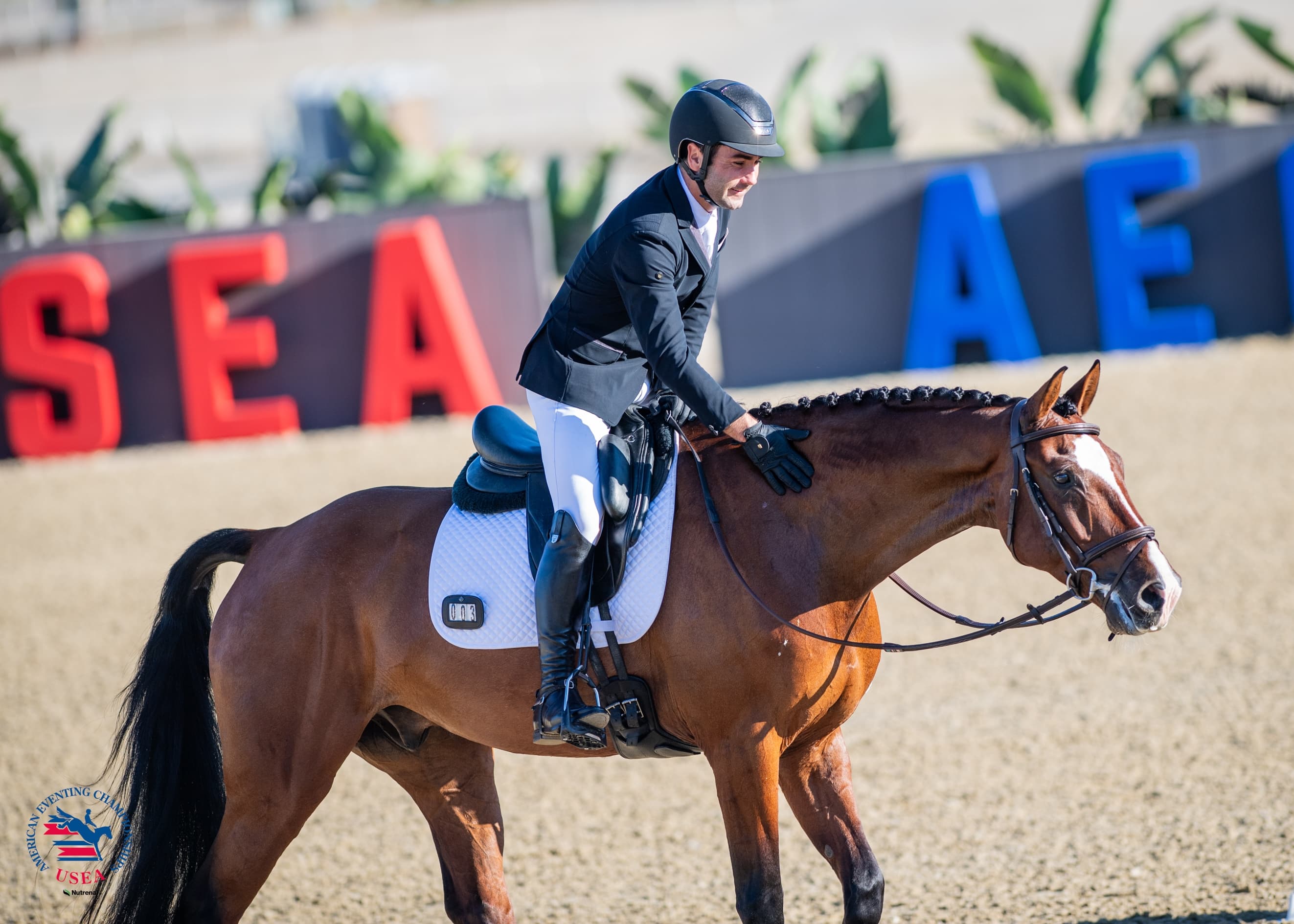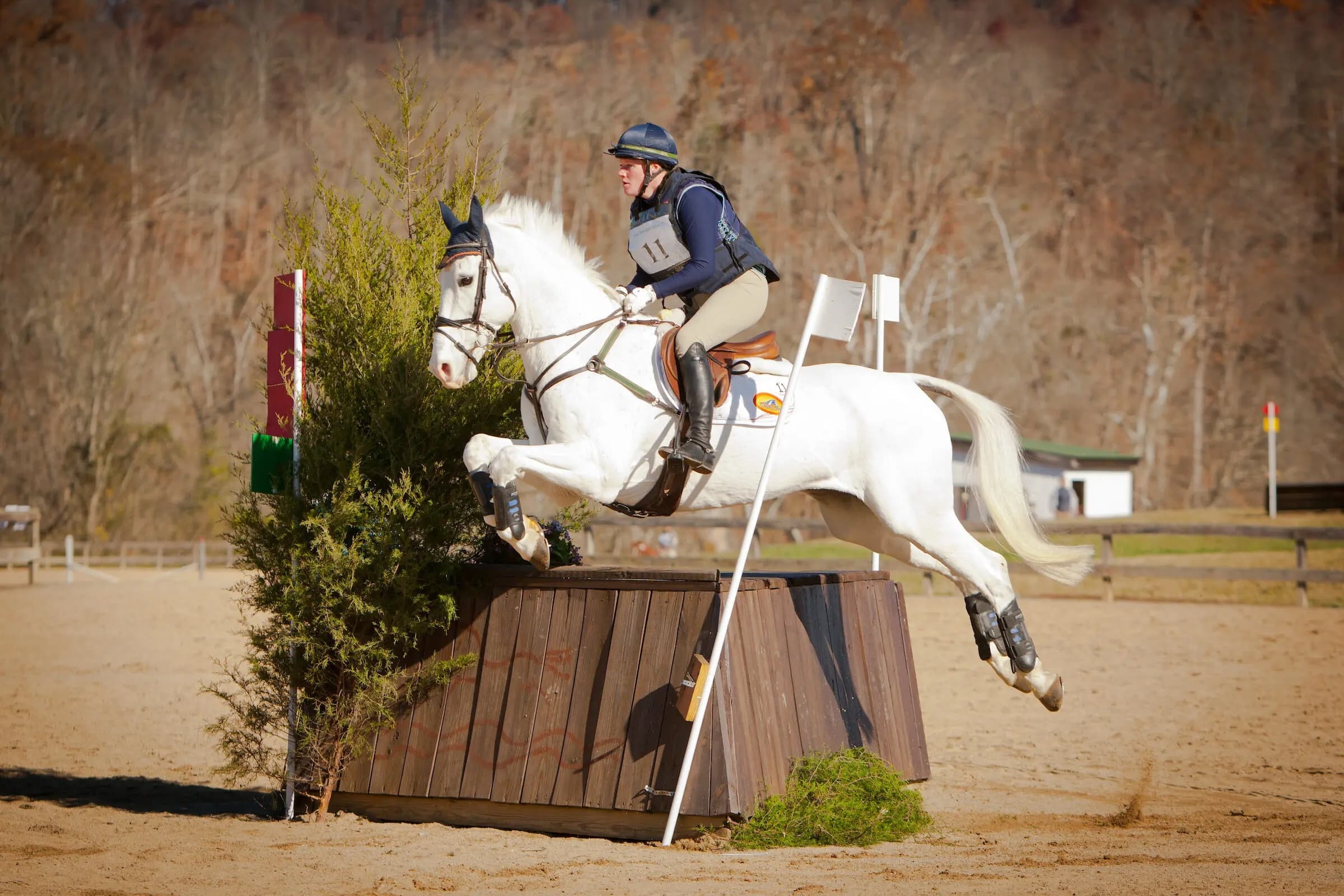EHV-1 Outbreak Information
The USEA would like to remind all of its members to be on alert for signs of EHV-1 due to the outbreak. Please read the below article for comprehensive information on the outbreak.
There has been considerable concern and speculation regarding several recently confirmed cases of Equine Herpesvirus (EHV-1), in states across the U.S., which have resulted in the deaths of several horses and led to the cancellation of one major horse show to date.
In early April, the New Jersey Department of Agriculture quarantined a farm in Colts Neck, Monmout County, after six horses contracted the neurological form of EHV-1. More recently, the Colorado Department of Agriculture reported they are currently investigating two confirmed cases of EHV-1 and have placed a quarantine on two farms in Weld County, CO.
According to a notice released today, from the Colorado Department of Agriculture, it has been determined that both of the two diagnosed horses had recently attended the National Cutting Horse Association’s Western National Championships in Ogden, Utah. As a result, this location is being investigated as a “point of interest” for the infection.
Recently, a major cutting horse event, The Breeder’s Invitational, which was scheduled for May 14-28 in Tulsa, OK has been cancelled, along with the NCHA event, the Mercuria/NCHA World Series of Cutting, that takes place in conjunction with the BI. According to the NCHA website, there were no horses exhibiting symptoms, the cancellation was simply a precautionary measure to ensure the safety of those horses competing.
Jeff Hooper, NCHA Executive Director, says the association will be continuously providing updated information to their members about this situation on their official website and Facebook page.
EHV-1, is a strain of the common DNA disease, Equine Herpesvirus, which can also be referred to as Rhinopneumonitis. According to guidelines from the American Association of Equine Practitioners, EHV-1 can cause neurological disease, respiratory disease and abortion in horses.
The Colorado Department of Agriculture has indicated that while EHV-1 is not transmissible to people, it is a very serious disease among equines, that can be spread by horse-to-horse contact, through the air, or contaminated clothing and equipment. Here is their list of common symptoms for Equine Herpesvirus.
Fever
Decreased Coordination
Nasal Discharge
Urine Dribbling
Loss of tail tone
Hind limb weakness
Loss of balance
Lethargy
We had the opportunity to speak with Dr. Keith Roehr, Colorado State Veterinarian, who was able to give us more information about this recent outbreak of EHV-1.
“We will be putting more updated information on our website about the current situation in Colorado,” Roehr says. “There are some good links up there now to information from the USDA and AAEP about EHV-1. We will also be putting up daily updates about what is happening in Colorado with these horses who may have been exposed during the NCHA event in Ogden.”
“National associations like NCHA have been very good about being transparent with information on their websites and providing updates on the situation. I know there are other horses, that had been to Ogden, who had either been diagnosed or have tests pending in at least six other states and a couple provinces in Canada. Those states will also be providing updates on their websites.”
Roehr explains that Equine Herpesvirus is a DNA virus that has multiple strains. The strain of concern in this outbreak is EHV-1.
“There has been a mutation of this strain of the virus that is neuropathogenic, which can affect the nervous system of horses and cause encephalitis, which can have a high incidence of mortality,” he says. “The point to stress right now is that those horses at risk are those that had been to the event in Utah and one event during the previous week in Canada. Those horses will have had direct contact with infected animals. Horses outside those circles, as far as we know, are not at a direct risk, but our concern is that we manage this disease so that it doesn’t spread to other sectors of the horse industry.”
If you believe that your horse may have come into contact with the virus, Roehr recommends that you take your horse’s temperature twice a day. Any temperature over 101 to 102 degrees would be a horse that is considered to have a fever. In that instance, you should contact your local veterinarian with concerns about the appropriate collections of samples for testing.
“There is no direct treatment for the virus, but there are certain antiviral drugs that reduce the multiplication of the virus within the horse. There is not an effective vaccine or direct treatment that kills the virus, but there are symptomatic treatments that may be very effective in helping a horse to challenge and ultimately survive this disease. There are a number of medical methods of managing this disease that can be beneficial to the horse.”
Sally Baker, Director of Marketing and Public Relations for AAEP, says their organization is currently in the process of gathering more information about the EHV-1 outbreak.
“The AAEP is not in any regulatory capacity, as far as having individuals call in and report positive cases,” she says. “What happens is that each state veterinarian’s office oversees disease reporting within their own state. From my understanding, the Colorado State veterinarian is making decisions about horses in their state that may be infected, and the California State Veterinary Office has made some decisions about horses that they will allow into the state and what kind of paperwork will be necessary. Right now, it is on a state-to-state basis. We’re still in the process of gathering information ourselves.”
Follow this link to view a previous Equine Chronicle article, Equine Herpesvirus- A Deadly Enemy.
Click here to view a statement about horses returning from a horse show with a risk of exposure to EHV-1 on the Breeder’s Invitational Website.
Other Helpful Links Regarding EHV-1:
Equine Herpesvirus Type 1- USDA
Equine Herpesvirus Fact Sheet- American Association of Equine Practitioners
FAQ’s about Recent EHV-1 Outbreak- CSU
Utah State University Cooperative Extension Information Sheet
Updated Information About Specific States:
* A big thank you to the following state veterinary offices for helping to keep us updated with the most recent news about EHV-1 in their individual states.
California- There are currently no positive test results for this virus in California.
Colorado- Two confirmed cases of EHV-1 in two Colorado horses, that competed at the NCHA Western Nationals in Ogden, Utah. Further investigation is underway.
Connecticut- No exposed or diseased horses have been traced to Connecticut at this time.
Delaware- No horses from Delaware have been exposed at this time.
Florida- No exposed or diseased horses have been traced to Florida at this time.
Georgia- There are no known exposed or positive animals in Georgia.
Idaho- In Idaho, two horses that were in attendance at the Ogden, Utah event have died. Five other horses are currently under veterinary care. Laboratory confirmation of EHV-1 is pending. At least 26 Idaho horses were entered in the event.
Illinois- Illinois had two owners and two horses participate at the Utah event. One horse returned to Illinois on 5/8. It is under current observation and is clinically normal. The second horse is currently stabled out of state, is under current observation, and is clinically normal.
Kentucky- Information/recommendations we are making available to the public can be found on our web page at www.kyagr.com/statevet/equine/index.htm. Kentucky has no horses reported to be exposed to the outbreak.
Louisiana- Louisiana had one owner with three horses that attended the Western Nationals. All horses are isolated and under a veterinarian’s observation since Saturday, May 14. There are asymptomatic as of now.
Maine- The state of Maine did not have any horses that attended the Utah event.
Michigan- There are no known exposed horses in Michigan.
Missouri- “Missouri only had one horse that attended the Utah event. It is now isolated and is being temped twice a day.”- Taylor Woods, Missouri State Veterinarian
Nebraska- We have five owners and five horses involved. All quarantined as of 10:30 am CST today. No symptoms yet and temping twice a day. Two of them exhibited at a local cutting show in Kearney, Nebraska, four days after attending Utah event.
Nevada- Thirteen horses attended the NCHA Western National Championship. Nevada has provided information to all owners that attended the Utah event and advised them to monitor horse temperatures and to practice quality bio-security measures. We have not detected the disease within our state, yet. No additional movement requirements have been established due to the current situation.
New Jersey- A horse farm in Colts Neck, Monmouth County was quarantined after six horses contracted EHV-1 in early April, before the Utah event.
New York- “At this time there are no known exposed horses in New York. We advise all animal owners to be extremely cautious when returning from fairs and other competitions. Returning livestock should always be isolated from the rest of the herd for three weeks whenever possible.”- David Smith- NYS Dept. of Agriculture and Markets
North Carolina- No horses from North Carolina have been exposed at this time according to a call from COSDA this afternoon.
North Dakota- North Dakota has two horses listed that attended the Utah event, but they are both under the same owner’s name. The owner has been contacted and we are in the process of establishing the location of the horses.
Ohio- There are no known horses that were exposed in Ohio.
Oklahoma- The Breeder’s Invitational, May 14-28 in Tulsa, OK has been cancelled, along with the NCHA event, the Mercuria/NCHA World Series of Cutting.
Pennsylvania- Pennsylvania has no known horses exposed at this time.
Rhode Island- There have been no reported exposed horses in Rhode Island at this time.
South Carolina- There are no known exposed or positive horses in South Carolina.
South Dakota- “Two owners and four horses that attended the event. No fevers or symptoms noted. Temped twice daily, under unofficial isolation and instruction to call if symptoms are noted”- Dustin Oedekoven
Texas- “Texas Animal Health Commission veterinarians attempted to contact all 27 horse owners over the weekend that we believe attended the Utah event. They were advised to isolate the potentially exposed horses if possible, and contact their vet or TAHC is they had any animals become clinically ill. So far we have found no horses with clinical signs and no confirmed cases in Texas. I believe there were only a couple that we have not been able to contact yet, so that is good news from Texas for now.”- Dee Ellis, Texas State Veterinarian
The District of Columbia- The District of Columbia has no known exposed horses at this time.
Utah- “Utah, at this time, has no confirmed cases, but we are following up on several suspect cases, (horses with clinical signs consistent with EHV-1 and who attended the event.) There have been no travel restrictions put in place as of date. There may be cancellations of equine events in the state. Horse owners should call the event organizers for the latest status of the event.”- Wyatt Frampton- Utah State Veterinarian
-The No Bling/All Novice Show at the Golden Spike Event Center in Ogden, Utah, May 14-15 has been cancelled.
Virginia- There are no known exposed horses in Virginia.
Washington State- Washington has 34 horses that were entered in the NCHA Western Nationals in Ogden Utah. One horse that attended tested positive by PCR nasal swab after a temperature rise. Two horses that attended are showing neurological signs and we are waiting the test results. WSDA is sending information to all owners that attended and advising stop movement and isolation.
According to the Washington State University website: There are no horses exhibiting signs of EHV-1 at WSU, however they will not be admitting any new equine or camelid patients to the WSU Veterinary Teaching Hospital, except for critical emergencies, because a horse was admitted recently that has since been found positive for EHV-1.
West Virginia- There are no known exposed horses in West Virginia.
Wyoming- Wyoming has nine owners and an uncertain number of horses, (some were shown in Utah, some were on the show premises, but not shown.) All have been notified and are under an unofficial hold order. They are isolated away from other horses. One is a febrile, [has a fever], but asymptomatic horse.














